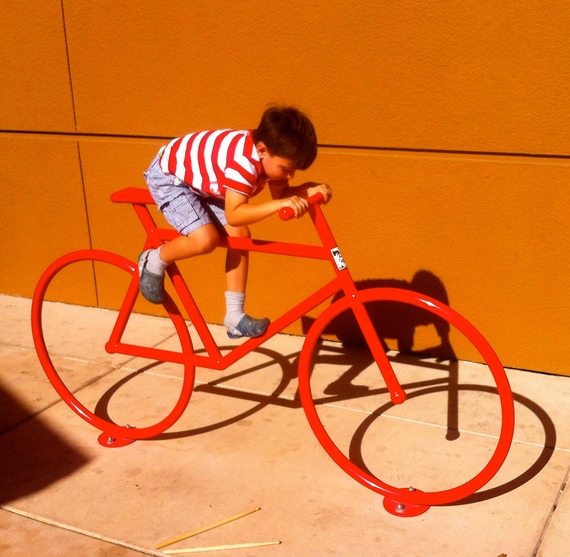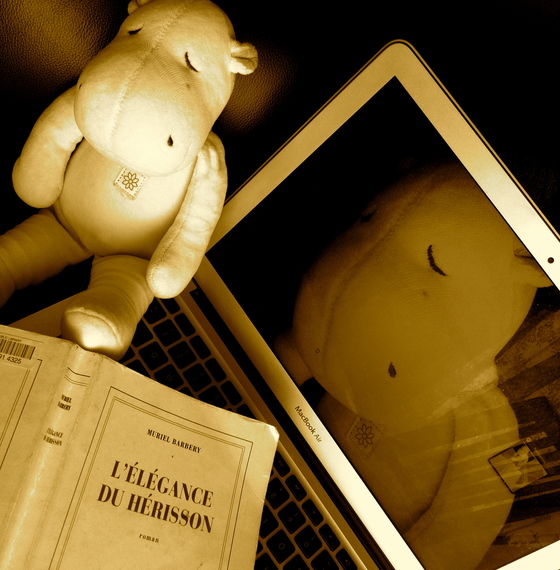"The architecture of how we live our lives is badly in need of renovation and repair. What we really value is out of sync with how we live our lives. And the need is urgent for some new blueprints to reconcile the two." -- Arianna Huffington
Did you ever ask yourself how did we end up calling "play date" the act of -supposedly- unstructured, free play of children? I mean, do you think that kids really need a "date" to play?
For over 14 years now I have been advising executives, VCs, employees, mothers, husbands and their children. Whatever the issue is, I am still surprised to notice that over 95 percent of those needing my assistance are not aware of the connection between their challenges and the fact that they just have too much on their plate. "Busy" seems to have blinded and effectively incarcerated us all, becoming a virtue validated and glorified by the culture around us.
So, why do people keep going and even increase their schedule and to-do lists, despite the obvious decrease of their life quality? Well, think eating disorders, like anorexia for example: there is no sensation of hunger, although the anorexic hasn't been eating for days sometimes. And there is no ability to see one's real body image: the anorexic perceives his/her body as fat, although the mirror and the scale indicate dangerous weight loss.
It is exactly the same with being busy: people have lost the ability to perceive the warning signs that they need to stop.
Here are my 6 very good reasons to slow down, the way they formulated themselves throughout years of observing and working with human relationships:
1. Busy Becomes the Fast-Food That Feeds Your Life.
The way convenience has replaced nutrition, by normalizing the consumption of synthesized fast-food to the expense of slow cooked natural ingredients, the same way pause, contemplation and slow strolls in the park have been replaced by incessant movement. And the same way junk food makes you crave it again, being busy increases your need for being busier and makes you feel anxious if your schedule is not overflowing.
When busy becomes a way of being, you start approaching relationships with the same mindset. You begin relating to people in terms of the "value" of the time you "invest" or "spend" in a relationship (please note the finance lingo so popular to describe a romantic or friendly relationship). Spontaneity, awe, surprise, are forgotten or they never develop, and when encountered they are perceived as nuisances. Since you do not seem to find a satisfactory relationship, worth investing your time, you bury yourself even more in busy activities to forget and justify your relational "failure", and then 1-3 years later you come and see me complaining of anxiety, anger, insomnia, loneliness and difficulties managing your employees.
3. Busy Is Contagious. When you see your life as an endless chain of planned goals, objectives and activities, you tend to transform your children too in (lifetime) projects. It is still unbelievable for me to see the scheduling (activities, sports, appointments, play-dates, etc.) that starts as early as 3 months old. Children learn that normal is to constantly, incessantly do something, and consequently they never learn how to be.
4. Busy Creates and/or Becomes Addiction. Raise your hand if in high-school, college, grad-school, or your current profession you use prescribed or illegal stimulants so that you can study or work more. Well, when someone needs a chemical in order to perform more (= "normal"), they might be advancing on the addiction road, initially paved with the most honorable intentions. Using chemicals to keep yourself going and justifying it with "I'm busy" shows how deeply disconnected from our own selves we have become.
5. Busy Becomes Anger. Frustration, irritability, anger are all normal emotions and as long as they are acknowledged and expressed in a way that allows for a resolution, they are nothing but opportunities for emotional growth. But when you are flooded by information, tasks, goals, and last minute stuff, your ability to respond in a socially accepted way is challenged. Frustration becomes anger, anger is directed toward others or yourself, and then becomes aggressive or passive-aggressive behavior.
6. Busy Promotes Denial. Increasing the busy time is very efficient in avoiding dealing with unpleasant aspects of your life: "busy" prevents you from facing those issues. Insecurity, loneliness, feeling unwanted, worried or discouraged, these emotions do not go anywhere, they are just buried deep down, under many hours of "busy". They pile up on the back burner of your psyche and they will come out in other circumstances, often disguised as anger, anxiety, gastritis, substance abuse, phobias, OCD behavior, insomnia, inability to focus, inability to sustain relationships and hundreds more. Obviously, dwelling on negative emotions is not a healthy option either. But denying their existence by pretending you are too busy will not get you much further.
Slowing down is essential because a true psycho-emotional development is not possible when we move through life at "busy" speed. There are many intelligent, hardworking people out there, many of them key decision makers, but who are, from an emotional point of view, illiterates. However, as indicated by numerous research, the trend is shifting: Millennials desire a completely different social, economical and political environment. For them, emotional and cultural intelligence are vital in a world where globalization and entrepreneurship are adding thousands of layers of complexity. Leadership is seen now as an optimal mixture of contemplation and decided action, in which knowledge and emotion are integrated to produce solutions never imagined before. None of these can be developed, optimized and maintained by people who busy themselves out of their minds.
"The pause is especially important for the freedom of being, what I have called essential freedom. For it is in the pause that we experience the context out of which freedom comes." -- Rollo May



